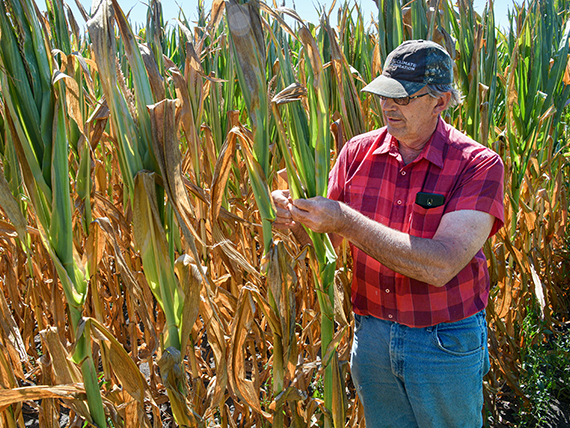Croplink
Crop Production May Wither
Global crop yields could shrink by 3 to 10% by 2050 and 11 to 25%, under a vigorous warming scenario, by the end of the century because of climate change.
A study published in the Journal of Environmental Economics and Management concludes that yield reductions in corn, soybeans, wheat and rice could occur if farmers can't adapt better to climate challenges than they have historically. To read the study, visit https://www.sciencedirect.com/….
A team of researchers led by Ian Sue Wing from Boston University used statistical models trained on past data with forecasts of future temperature and rainfall from 21 high-resolution global climate models simulations to project how yields might change in response to shifting climate patterns.
P[L1] D[0x0] M[300x250] OOP[F] ADUNIT[] T[]
"Globally, farmers' capacity to adapt to climate change impacts, even over a longer period, might be limited,'" Wing explains in an article published on Phys.org. "Even in the United States, the world's agricultural technology frontier, farmers have been able to only slightly compensate for the adverse impacts of extreme heat on yields of maize and soybeans over time frames of decades."
To read the article, visit https://phys.org/….
Farmers may not be able to control the weather, but they can alter production practices to help compensate for extreme climatic events. This may include changing the amount of fertilizer or irrigation water applied to crops. Shifting planting and harvest dates, adopting new farming technologies, planting cover crops, employing conservation tillage or no-till, and investing in more or different agricultural machinery have the potential to compensate for the effects of adverse weather on yields.
**
-- Follow the latest from Matthew Wilde, Crops Editor, by visiting the Production Blogs at dtnpf.com or following him on Twitter @progressivwilde
[PF_0921]
(c) Copyright 2021 DTN, LLC. All rights reserved.




